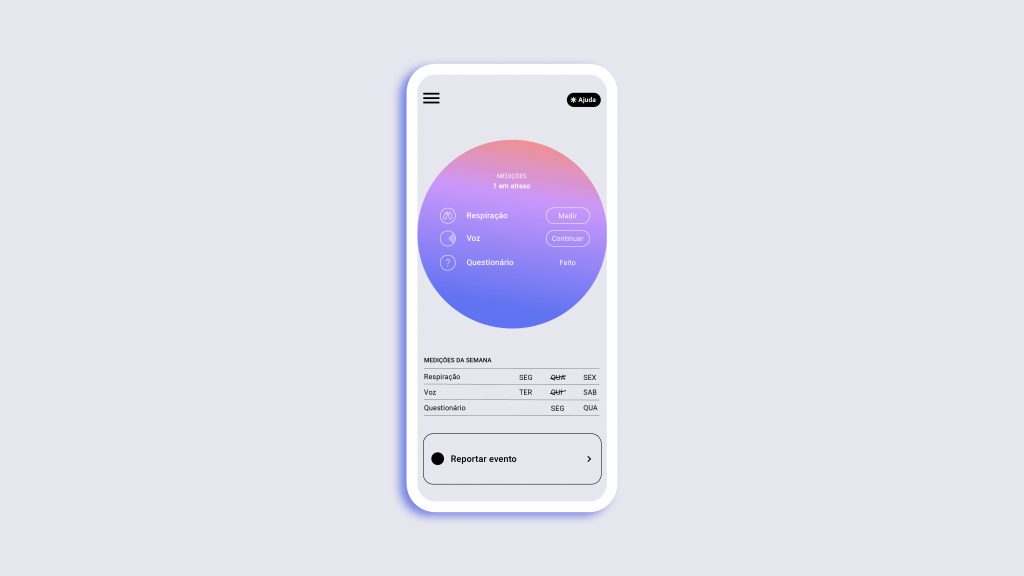Overview
The HomeSenseALS project aims to develop, implement, and validate a new approach for clinical assessment of Amyotrophic Lateral Sclerosis (ALS) patients. Given the high complexity, heterogeneity and fast progressive nature of ALS disease, objective symptom assessment is a major research priority in the field. This exploratory, single-centre, and prospective cohort study is based on low-cost sensors and apps and will allow remote monitoring of patients incorporating physiological, behavioural, and sensorial data collection.
HomeSenseALS will develop a smartphone application which will serve as a (self-)reporting tool for patients/caregivers and a data aggregation platform. It will record data from the sensors (accelerometer, magnetometer, and gyroscope) or microphone (for voice analysis). It will also connect to other wearable sensors, including pulse oximeters, spirometry, and respiratory chest bands. To extract meaningful markers of disease progression, different algorithms will therefore be developed for mobility pattern recognition, speech, and respiratory deterioration analysis.
The goal is to explore whether such an approach could be advantageous for future drug trials, personalized appointment schedules and faster clinical response to abnormal events.
HomeSenseALS specific aims can be summarized as follows:
- Create a mobile application to remotely collect data of ALS patients in their home environment, relying on sensors from the smartphone (for mobility patterns and speech analysis) and wearables (e.g., pulse oximeters, chest bands and spirometry). This application will be designed considering specificities of ALS patients and their caregivers, to maximize adherence.
- Develop and implement algorithms to process the remotely collected data, focusing on mobility pattern recognition or respiratory function and speech deterioration detection, and consequent anomaly detection to correlate with disease progression.
- Conduct a 3-month Pilot Study of home-based monitoring with ALS patients, in order to have an initial safety assessment as well as to test the robustness of the technological procedures.
- Extend the Pilot Study into a 6-month Core Study with a larger sample of ALS patients, in order to determine the correlation between our novel objective monitoring and the standard clinic-based assessment.


